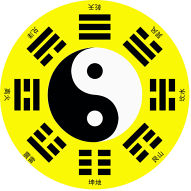
China Overview
- Population: 1.3 billion
- Currency: yuan
- Guinness World Records: most people painting each other's faces simultaneously in one location (13,413), largest bottle of cooking oil (containing 3212 litres), most couples hugging (3009 couples).
- Internet users: 135 million
- Milk beer: from Inner Mongolia, an alternative to the traditional mare's-milk wine.
- Squirrel fish: whole mandarin fish deep-fried and manipulated to resemble a squirrel.
- Number of chinese characters: over 56,000
Chinese Religion
Chinese religion is not an organized, unified system of beliefs and practices. It has no leadership, no headquarters, no founder, and no denominations. Instead, "Chinese religion" is a general term used to describe the complex interaction of different religious and philosophical traditions that have been especially influential in China. |
What were the main religions in China? | |
In China, Confucianism, Daoism and Buddhism are the three main religious beliefs, with other beliefs as supplementary. Confucianism is a patriarchal religion that reveres heaven and ancestors. Its philosophy is Confucianism. Compared with a traditional patriarchal religion which usually has a religious belief but no philosophy, Confucianism does not have actual religious belief but a philosophy. Buddhism is both a religion and a philosophy. Daoism is both a religion and a school of thought. |  |
To classify the traditional Chinese religions, Confucianism is a philosophy with a patriarchal religious style. Daoism is akin to the patriarchal, clericalist power, with disciples pursuing individual religious goals. Buddhism gives support to the masses to live quietly under the combined rule of the patriarchal, state power and religious power. Either of them provides but the external form of the patriarchal religion. Traditionally Taoism and Confucianism provided ethical guides to the proper behavior of individuals and officials. Both of these systems originated in China during the Spring and Autumn Period, so-called Golden Age of Chinese thought. Taoism sought to promote the inner peace of individuals and harmony with their surroundings. Confucianism, based on the teachings and writings of the philosopher Confucius, is an ethical system that sought to teach the proper way for all people to behave in society. Each relationship, husband-wife, parents-children, ruler-subjects, involved a set of obligations which, if upheld, would lead to a just and harmonious society. Following his teachings would also promote a stable, lasting government. | |
| ||||||
All Topics about China
- General-China-Introduction
- C2-Chinese-History
- Chinese-Religions
- Chinese-Food-and-Drink
- Chinese-Literature
- Chinese-Nationality
- Chinese-Architecture
- Chinese-Arts-and-Crafts
- Chinese-Language-and-Education
- Chinese-Medicine
- Chinese-Transportation
- Chinese-Festival
- Chinese-Astrology-and-Zodiac
- Chinese-Calendar
- Chinese-Traditional-Sports-&-Activities
- Chinese-Martial-Arts
HOTMost Popular Topics
Climate in China
Because of its size, China has great climatic diversity. Generally, the best time to visit China is during spring and autumn.
Chinese-Language-and-Education
Chinese is the most commonly used language in China, and one of the most commonly used languages in the world.
Chinese-Festival
China has many traditional festivals, including the Spring Festival, the Lantern Festival, the Dragon Boat Festival.
Chinese Chinese-Astrology-and-Zodiac
In the Chinese zodiac, twelve animals are used to denote the year of a person's birth: rat, ox, tiger, rabbit, dragon.
History of China
China, one of the world's most ancient civilizations, has a recorded history of nearly 4,000 years..







